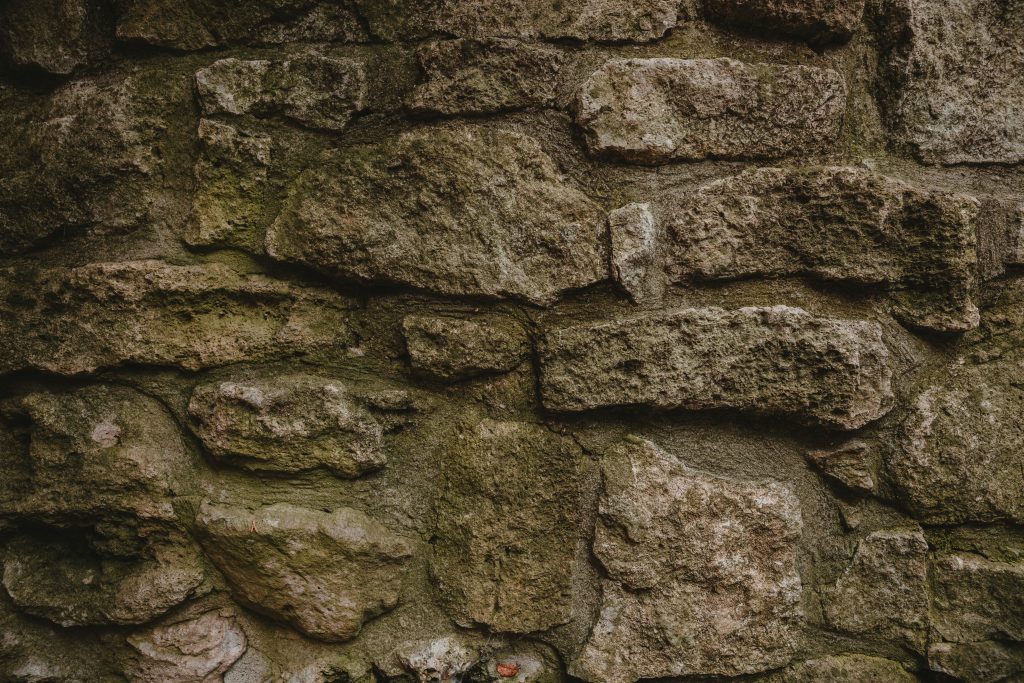Ein feste Burg ist unser Gott. Do those words mean anything to you? Perhaps their translation into English might help: A Mighty Fortress is our God. Starting to ring a bell? Roughly ten years after nailing his Ninety-five Theses to the door of All Saints’ Church in Wittenberg (1517), the famous German reformer, Martin Luther, sat down to compose the song that is today often simply referred to as “The Battle Hymn of the Reformation” – Ein feste Burg ist unser Gott.
Luther’s inspiration for this hymn, of course, did not come from within himself. He was an artist – it is true – endowed with remarkable gifts of insight and creativity. But the inspiration for A Mighty Fortress is our God was Luther’s Bible – in particular, Psalm 46. And if we don’t see that fact clearly, we miss the entire point of Luther’s hymn – a hymn that brings out into the open precisely where the reformer’s confidence in both his own deliverance as well as the Reformation cause at large truly lay.
This post begins a two-part series that delves into the great Psalm that inspired Martin Luther’s “Battle Hymn of the Reformation”. Part 1 considers the richness of the imagery in Psalm 46 – imagery that poetically and persuasively calls the people of God to take shelter in the shadow of the Almighty when the storms of life rage hard. Part 2 will consider some of the idols of our own day that militate against the church’s powerful proclamation that true refuge is to be found in God alone. As fallen sinners in Adam, we are all refugees in a sin-cursed world – exiled from Eden, wandering through the wilderness. Psalm 46 is our open invitation to come out of the threatening wasteland and into a fortress of peace and safety, wherein the river of God’s delights and the tabernacle of the Holy One stand unassailably secure – towering above us as sure tokens of God’s protective care for His own.
The twice-heralded refrain “The LORD of hosts is with us; the God of Jacob is our refuge” (Ps. 46:7; 11) provided the starting point for Luther’s confidence in a time of great social, political, and religious upheaval, along with a high degree of personal danger that accompanied nearly every move of the man himself. The medieval European world was crumbling fast. The cracks in the foundation of a dysfunctional Roman Catholic Church had been exposed, much to the chagrin of pope and prelate. The courageous reformer had cast his die, crossing the Rubicon into dangerous territory. While deemed a hero in the eyes of many, he was accused by others of being an insolent traitor. Martin Luther was a marked man. The cause upon which he had so firmly stood was, humanly speaking, vulnerable to a fierce counterattack from the opposition. And it was this twice-heralded refrain of Psalm 46 that motivated Luther’s own response to the situation, becoming the first six words of the hymn itself: A Mighty Fortress is our God.
The word translated “refuge” is the Hebrew word misnav. It is a word the Bible uses to describe an elevated location, often on a hill or mountain, providing needed protection from enemies. In Isaiah, we read of the one living in safety who dwells “on the heights [whose] place of defense will be the FORTRESSES (misnav) of rocks” (Is. 33:16; ESV). Conversely, we read of the impending downfall of God’s enemies who think they are living in the safety of their elevated position but are sadly mistaken: “The fortress of the HIGH FORT (misnav) of [their] walls [God] will bring down, lay low, and bring to the ground, down to the dust” (Is. 25:12).
But this word, misnav, is also used in a figurative sense – pointing to God’s own protective care of His people. Following a mighty deliverance from his enemies, King David praised God with these words: “The LORD is my rock, and my fortress, and my deliverer … The God of my strength, in whom I will trust. My shield and the horn of my salvation, my STRONGHOLD (misnav) and my refuge, my Savior, you save me from violence.” (2 Sam. 2:22-23).
It is in the Psalms, however, that God’s protective care of His people is often highlighted by this word misnav. In Psalm 9:9, we read that “The LORD will … be a refuge (misnav) for the oppressed, a refuge (misnav) in times of trouble” (KJV). In Psalm 18:2, we read that “The LORD is my rock, and my fortress, and my deliverer; my God, my strength, in whom I will trust, my buckler, and the horn of my salvation, and my high tower (misnav)” (KJV). And in Psalm 62:2, the psalmist cries out: “[God] only is my rock and my salvation; He is my defense (misnav); I shall not be greatly moved”. And, of course, Psalm 46 reminds us that “The LORD of hosts is with us; the God of Jacob is our fortress (misnav)” (vv. 7; 11; ESV).
What a rich tapestry of language describing God’s protective care of His people! He is their FORTRESS, their HIGH FORT, their STRONGHOLD, their REFUGE, their HIGH TOWER, their DEFENSE! The Bible could not be more clear in telling us where we are to run when the enemy’s advance is seen on the horizon – heard in the distance – threatening to destroy us with all its vehemence! As the psalmist says: “When my heart is overwhelmed … Lead me to the rock that is higher than I” (Psalm 61:2).
It was that Rock that Martin Luther was driven to through the crushing circumstances of his own life. It was that Rock that the Church of Jesus Christ was led to rest in while the beleaguering waves of reformation and counter-reformation crashed down upon friend and foe alike. And it was perched upon that Rock that the Israel of God would catch that first glimpse of light dawning on the horizon, signalling that the day of post tenebras lux (“after darkness, light”) had finally arrived. What God had said to His Old Covenant people in the days of Moses and Joshua rang no less true in the days of the reformers: “For the LORD has driven out from before you great and strong nations … but as for you, no one has been able to stand against you to this day … FOR THE LORD YOUR GOD IS HE WHO FIGHTS FOR YOU, as He promised you” (Jos. 23:9-10).
And while the Reformation cause was still in its relative infancy when Luther sat down to write A Mighty Fortress is our God, the reformer knew well that the only safe place to be was in the omnipotent hands of the Almighty God: “And though this world, with devils filled, Should threaten to undo us, We will not fear, for God hath willed His truth to triumph through us.” You see, Martin Luther saw clearly his twofold call to run into the fortress of divine refuge and, from there, let the Word of God lead the way, advancing unconquerably upon an already vanquished foe: “The Prince of Darkness grim,—We tremble not for him; His rage we can endure, for lo! His doom is sure,—One little word shall fell him.” Yes, just one little word from Him who leads His people on to sure victory – He who says “Be still, and know that I am God; I will be exalted among the nations, I will be exalted in the earth” (Ps. 46:10).
So what about you? Have you come to embrace the reality that the only safe place for you to be is in the omnipotent hands of the Almighty God? When the world, the flesh, and the devil make their threatening advance upon your own beleaguered soul in times of trouble, have you learned to run immediately to God – your fortress; high fort; stronghold; refuge; high tower; and defense? And like Martin Luther, have you come to see clearly that God’s precious Word is what will go forth and lead the way to victory? Victory over the world, the flesh, and the devil. God says: “For as the rain comes down, and the snow from heaven, and do not return there, but water the earth, and make it bring forth and bud, that it may give seed to the sower and bread to the eater, so shall My word that goes forth from My mouth; it shall not return to Me void, but it shall accomplish what I please, and it shall prosper in the thing for which I sent it” (Is. 55:10-11). As Psalm 46:6 reminds us, He utters His voice and the earth melts!
God is our refuge, and His Word is our only hope. If we’re not gripped by these twin truths, we’re lost at sea. In Part 2, we will consider some of the idols of our own day that militate against the church’s powerful proclamation that true refuge is to be found in God alone. Soli deo gloria.
By Pastor Dan (November 2019)
*Unless otherwise indicated, all Scripture quotations taken from the New King James Version (NKJV). Copyright 1982 by Thomas Nelson, Inc. Used by permission. All rights reserved.
*Scripture quotations marked (ESV) are from The ESV Bible (The Holy Bible, English Standard Version), copyright 2001 by Crossway, a publishing ministry of Good News Publishers. Used by permission. All rights reserved.


